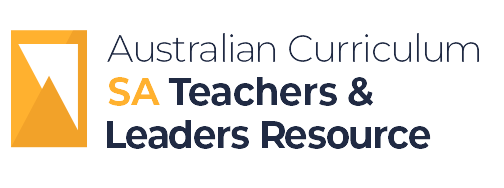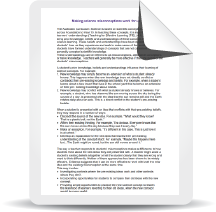WORKING WITH CURRICULUM
Science
In this section:
- Science animation (essence) – key elements of the Australian Curriculum science learning area – video
- Science ‘Bringing it to Life’ [BitL] – questioning tool: students thinking scientifically – interactive resource
- Science BitL printables – posters, placemats, questioning tools & overviews to use with F-10 students – print
- Audio series about the big ideas/concepts (conceptual narratives) – in science that grow in complexity across the year levels – audio
- Science booklets (conceptual narratives – print) – taking the big ideas/concepts to practical classroom science learning tasks F-10 – print
- Designing learning in science for multi-age classes – Professor Martin Westwell explains – video
- Science scope and sequence – print
- STEM animation (essence) – unpacking STEM (science is one discipline within STEM) – video
- Misconceptions in science – in each science understanding – interactive resource
Science animation – What is it for?
Video (3.41 mins)
From a video animation series describing the essence of each learning area and how the components of the learning area work together
These animations describe the essence of each learning area and how the components of the Australian Curriculum learning area can work together to create powerful, relevant learning experiences for our students.
Science ‘Bringing it to Life’ [BitL]
A process tool that demonstrates how we can bring together what we want students to learn and how we want them to learn it – to engage our students in deep learning.
*Click the ‘enlarge icon’ to access the full benefits of this tool (located on the bottom right).
Science BitL printables
These posters, placemats, questioning tools and BitL overviews have been designed to be used in classrooms with students F-10.
Downloads:
Learning area specific resources available to be downloaded and printed.
The conceptual narratives for Learning Areas F-10
The audio series describes the big ideas and concepts in the curriculum of each learning area that grow in complexity across the year levels F-10. These brief descriptions give teachers clarity about the key concepts of each learning area and support designing learning to connect up concepts across multi-age groups.
*Click the ‘enlarge icon’ to access the full benefits of this tool (located on the bottom right).
Conceptual narrative – Science printables
The resources show examples of how the BitL questions can be used to develop conceptual understanding using specific learning area content from F-10.
Downloads:
Learning area specific resources available to be downloaded and printed.
Chemical Sciences
Physical Sciences
Earth and Space Sciences
Designing learning in science for multi-age classes
Video (6.47 mins)
Professor Martin Westwell uses practical examples to show how we can design learning in science in composite classes.
Science scope and sequence
Stem animation – What is it for?
Video (6.21 mins)
STEM is science, technologies and mathematics.
It is a key area of learning for students’ futures.
A video animation describes the essence of STEM and how the components of science, technologies and mathematics work together.
A useful starting point for a conversation with teachers, students and community.
Science misconceptions
An interactive tool for exploring, sharing, and challenging common misconceptions in the science classroom.
Downloads:
How to use this tool
(PDF, 326KB)

